Evaluation
G7 Research Group 2016: France at the forefront of research evaluation
Published on
Evaluating the impact of research
Member States are committed to developing new methods for evaluating the impact of research and all agree on the safeguards required to govern them. Research funding agencies (NSF for the USA, DFG for Germany, British Council for the United Kingdom and the ANR for France) are working hard to develop performance indicators and impact measurements. However, representatives agreed on the need to avoid any mechanisms that might lead to research outputs being programmed in advance or that base funding too closely on research impacts. Furthermore, the indicators developed should not leave evaluation exempt from analysis by peers who are able to determine whether outputs are in keeping with the specific objectives of the subject being evaluated.
Evaluating site-wide policies
The evaluation of research policies at the regional or site level is a growing trend. The European Commission described the Smart Specialisation strategy for regions and Hcéres presented its approach to the integrated evaluation of sites. Germany has also expressed strong interest in the topic. The German Research Foundation (Deutsche Forschungsgemeinschaft - DFG) presented a regional research atlas at the meeting.
Evaluating scientific integrity
G7 countries all have scientific integrity policies that address the need to prevent and respond to scientific fraud. Among the initiatives presented, those of France included the CNRS guide for integrated practices, Hcéres evaluation of research bodies’ scientific integrity policies , and the forthcoming establishment of a National Office for Scientific Integrity in line with recommendations in the report issued by a working group chaired by Pierre Corvol.
Find out more:
An informal working group on research assessment was established in 1995 during the G7 meeting of Ministers of Research. The group meets yearly in one of the member countries (Germany, Canada, United States, France, United Kingdom, Italy, Japan).The meetings are held in an effort to continuously improve practices and are an important opportunity for the representatives of research funding and evaluation agencies, research bodies and the European Commission to share information and best practices.
Rome (Italy) is set to host the next meeting in autumn 2017.



